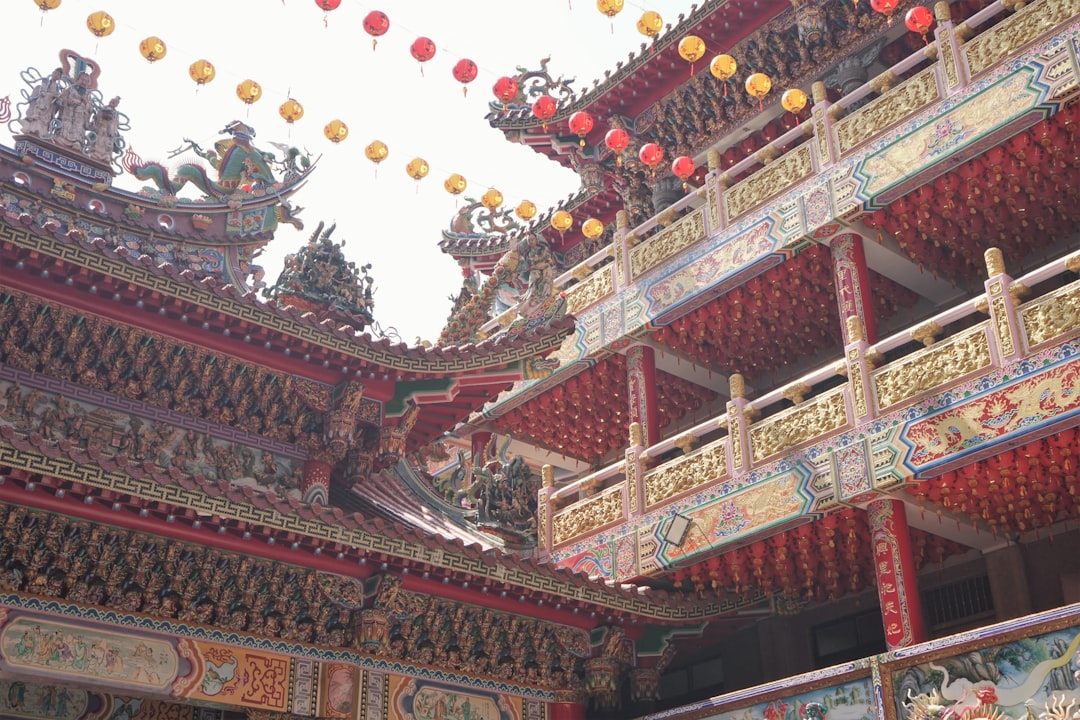Decentralized Autonomous Organizations (DAOs) represent a transformative approach to organizational governance, leveraging blockchain technology to create entities that operate without centralized control. DAOs are governed by smart contracts, which are self-executing contracts with the terms of the agreement directly written into code. This structure allows for transparent decision-making processes, where stakeholders can participate in governance through voting mechanisms that reflect their stake in the organization.
The essence of a DAO lies in its ability to facilitate collective decision-making, enabling members to propose and vote on initiatives, allocate resources, and manage operations in a decentralized manner. Metaverse governance, on the other hand, refers to the frameworks and systems that manage virtual environments where users interact, create, and transact. The metaverse encompasses a wide range of digital spaces, from virtual reality (VR) worlds to augmented reality (AR) experiences, and even online gaming platforms.
Governance in these spaces is crucial as it determines how communities function, how rules are enforced, and how resources are allocated. The intersection of DAOs and metaverse governance creates a unique paradigm where communities can self-organize and manage their virtual ecosystems without relying on traditional hierarchical structures.
Key Takeaways
- DAOs enable decentralized, community-driven governance within metaverse platforms.
- The adoption of DAOs in metaverse governance is rapidly increasing due to their transparency and inclusivity.
- While DAOs offer benefits like democratized decision-making, they also face challenges such as coordination and security risks.
- Successful DAO implementations highlight the importance of active community engagement and clear governance structures.
- Legal and regulatory frameworks for DAOs in the metaverse are evolving, requiring careful compliance and management.
The Rise of DAOs in Metaverse Governance
The emergence of DAOs within the context of metaverse governance has been fueled by the increasing popularity of virtual worlds and the growing demand for decentralized control among users. As more individuals engage in these digital environments, the need for governance structures that reflect the values and interests of the community has become apparent. DAOs provide a solution by allowing users to have a direct say in the management of their virtual spaces, fostering a sense of ownership and responsibility among participants.
Several factors contribute to the rise of DAOs in metaverse governance. First, the proliferation of blockchain technology has made it easier to create and manage DAOs, as smart contracts can automate many governance processes.
Third, the financial incentives associated with participating in DAOs—such as token rewards for active involvement—have attracted a diverse range of participants eager to contribute to the governance of their virtual environments.
Benefits and Challenges of Using DAOs in Metaverse Governance

The integration of DAOs into metaverse governance offers numerous benefits that can enhance community engagement and operational efficiency. One significant advantage is transparency; since all decisions and transactions are recorded on the blockchain, members can easily verify actions taken by the organization. This transparency fosters trust among participants, as they can hold each other accountable for their contributions and decisions.
Additionally, DAOs can facilitate rapid decision-making processes, as proposals can be submitted and voted on in real-time, allowing communities to adapt quickly to changing circumstances. However, the implementation of DAOs in metaverse governance is not without its challenges. One major concern is the potential for low voter turnout, which can undermine the legitimacy of decisions made within the organization.
If only a small percentage of members participate in voting, the outcomes may not accurately reflect the will of the broader community. Furthermore, technical barriers can hinder participation; users may lack the necessary knowledge or resources to engage effectively with DAO governance mechanisms. Additionally, issues related to security and hacking pose significant risks, as vulnerabilities in smart contracts can be exploited by malicious actors.
Case Studies: Successful Implementation of DAOs in Metaverse Governance
Several notable case studies illustrate the successful implementation of DAOs in metaverse governance, showcasing how these organizations can effectively manage virtual communities. One prominent example is Decentraland, a virtual reality platform where users can buy, sell, and develop parcels of land using cryptocurrency. Decentraland employs a DAO called the Decentraland DAO (or MANA DAO), which allows landowners to vote on key decisions regarding the platform’s development and policies.
This governance model has empowered users to shape the future of Decentraland actively, ensuring that their interests are represented in decision-making processes. Another compelling case study is that of The Sandbox, a decentralized gaming platform that enables users to create and monetize their gaming experiences. The Sandbox has established a DAO known as The Sandbox Game Maker Fund, which allocates resources to support game developers within its ecosystem.
Through this DAO, community members can propose projects for funding and vote on which initiatives should receive support. This approach not only fosters innovation but also strengthens community ties by involving users directly in the decision-making process.
The Future of DAOs in Metaverse Governance
As technology continues to evolve, the future of DAOs in metaverse governance appears promising yet complex. One potential development is the increased integration of artificial intelligence (AI) into DAO operations. AI could enhance decision-making processes by analyzing vast amounts of data to identify trends and inform proposals.
This could lead to more informed governance decisions that better reflect community needs and preferences. Moreover, as more individuals become aware of the benefits of decentralized governance, we may see an expansion of DAOs across various metaverse platforms. This proliferation could lead to a more interconnected ecosystem where different DAOs collaborate or compete for resources and user engagement.
However, this growth will also necessitate robust frameworks for interoperability between different DAOs to ensure seamless interactions among diverse virtual communities.
Legal and Regulatory Considerations for DAOs in Metaverse Governance

The legal landscape surrounding DAOs is still evolving, presenting both opportunities and challenges for their implementation in metaverse governance. One significant consideration is the classification of DAOs under existing legal frameworks. In many jurisdictions, DAOs may not fit neatly into traditional categories such as corporations or partnerships, leading to uncertainty regarding liability and regulatory compliance.
This ambiguity can deter potential participants from engaging with DAOs due to concerns about legal repercussions. Additionally, regulatory bodies are increasingly scrutinizing blockchain technologies and cryptocurrencies, which could impact how DAOs operate within metaverse environments. Issues such as taxation, anti-money laundering (AML) regulations, and consumer protection laws may necessitate compliance measures that could complicate DAO operations.
As such, it is crucial for DAO creators and participants to stay informed about legal developments and consider proactive measures to ensure compliance while maintaining their decentralized ethos.
The Role of Community Participation in DAOs for Metaverse Governance
Community participation is at the heart of successful DAO governance within metaverse environments. The effectiveness of a DAO hinges on its ability to engage its members actively and encourage them to contribute their ideas and expertise. A vibrant community fosters innovation and creativity while ensuring that diverse perspectives are considered in decision-making processes.
To facilitate participation, DAOs must implement user-friendly interfaces that simplify voting mechanisms and proposal submissions. Moreover, fostering a sense of belonging among community members is essential for encouraging active participation. This can be achieved through initiatives such as regular community meetings, educational resources about DAO operations, and recognition programs that celebrate contributions from active members.
By cultivating an inclusive environment where all voices are heard and valued, DAOs can enhance their legitimacy and effectiveness in governing metaverse spaces.
Tips for Building and Managing DAOs in Metaverse Governance
Building and managing a successful DAO within a metaverse requires careful planning and execution. One critical tip is to establish clear governance structures from the outset. This includes defining roles and responsibilities for members, outlining decision-making processes, and creating transparent guidelines for proposal submissions and voting procedures.
A well-defined structure helps prevent confusion and ensures that all participants understand how they can contribute effectively. Another important consideration is fostering an inclusive culture that encourages diverse participation. This can be achieved by actively reaching out to underrepresented groups within the community and providing resources that empower them to engage with DAO governance.
Additionally, leveraging social media platforms and online forums can help raise awareness about the DAO’s activities and attract new members who share similar interests. Furthermore, continuous evaluation and adaptation are vital for maintaining a thriving DAO. Regularly soliciting feedback from community members can provide valuable insights into areas for improvement or adjustment within governance processes.
By remaining flexible and responsive to community needs, DAOs can enhance their effectiveness in managing metaverse environments while fostering a sense of ownership among participants. In conclusion, as DAOs continue to gain traction within metaverse governance frameworks, they present both exciting opportunities and significant challenges that require careful consideration from all stakeholders involved.
In the context of understanding decentralized governance within the metaverse, the article “Exploring the Role of DAOs in Metaverse Governance” provides valuable insights into how decentralized autonomous organizations can shape virtual communities. For those interested in the intersection of technology and governance, a related article on the best software for online arbitrage can offer additional perspectives on how digital tools are transforming various sectors. You can read more about it here: best software for online arbitrage.
FAQs
What is a DAO?
A DAO, or Decentralized Autonomous Organization, is an organization governed by smart contracts on a blockchain, allowing members to make decisions collectively without centralized control.
How do DAOs function in the context of the metaverse?
In the metaverse, DAOs enable decentralized governance by allowing users to vote on rules, development priorities, and resource allocation, ensuring community-driven management of virtual environments.
What are the benefits of using DAOs for metaverse governance?
DAOs provide transparency, inclusivity, and democratic decision-making, reducing centralized control and enabling users to have a direct say in the evolution and management of metaverse platforms.
What challenges do DAOs face in metaverse governance?
Challenges include technical complexities, voter apathy, potential for governance attacks, legal uncertainties, and difficulties in coordinating large, diverse communities effectively.
Can anyone participate in a DAO governing a metaverse platform?
Participation typically requires holding the DAO’s native tokens or meeting specific membership criteria, allowing token holders to propose and vote on governance decisions.
How are decisions made within a DAO?
Decisions are made through proposals submitted by members and voted on by token holders, with outcomes determined by predefined voting mechanisms encoded in smart contracts.
Are DAOs legally recognized entities?
Legal recognition of DAOs varies by jurisdiction and is still evolving; some regions have begun creating frameworks to recognize DAOs, but many operate in a legal gray area.
What role do smart contracts play in DAO governance?
Smart contracts automate governance processes, enforce rules, execute decisions, and ensure transparency and trust by operating without human intervention once deployed.
How do DAOs impact user empowerment in the metaverse?
DAOs empower users by giving them ownership and control over governance, enabling them to influence platform development, policies, and resource distribution directly.
Are there examples of DAOs currently governing metaverse projects?
Yes, several metaverse projects utilize DAOs for governance, including platforms like Decentraland and The Sandbox, where communities participate in decision-making through DAO structures.

